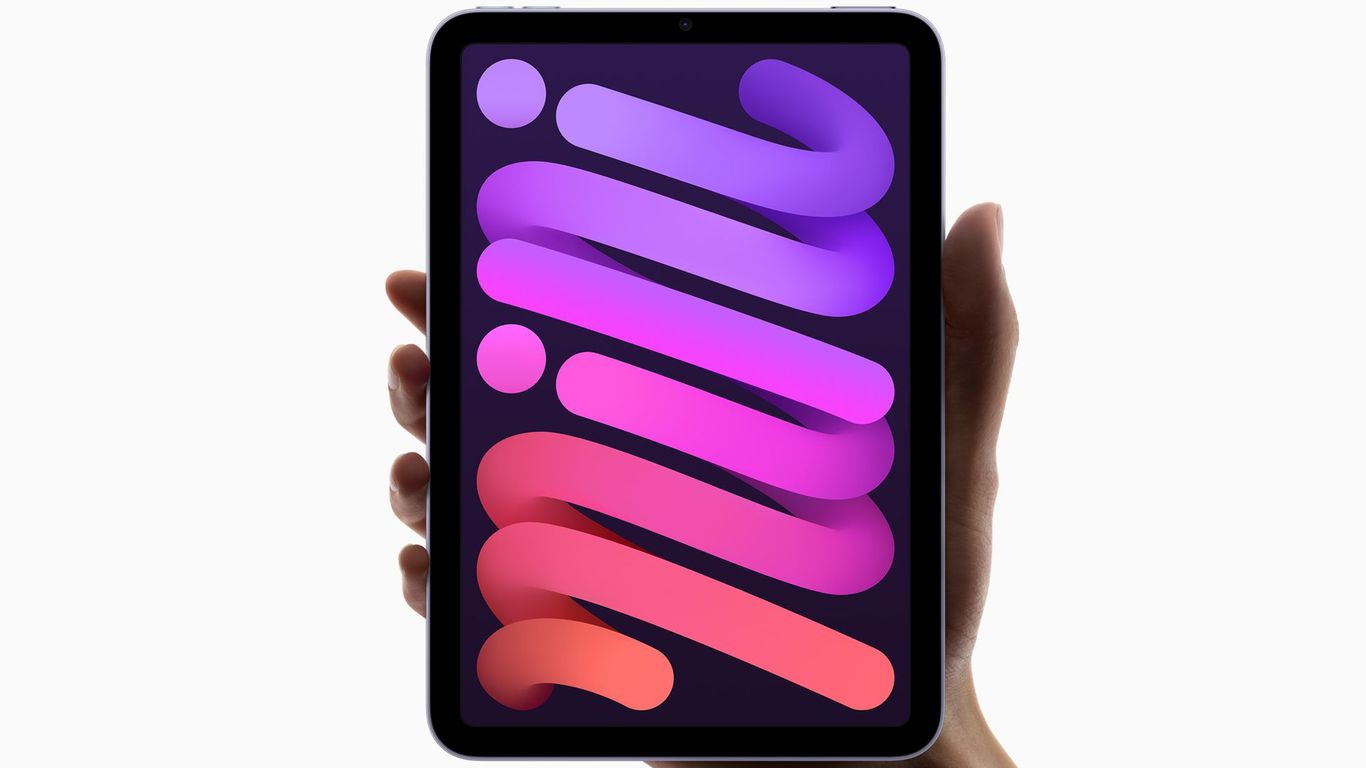
The new iPad Mini that Apple announced last week has all the hardware needed to be a cheaper alternative to the iPhone, with a larger screen to boot.
- There's just one thing disqualifying it from the role: Apple makes it hard for you to take traditional calls or dial out.
Why it matters: A lot of users want to get into Apple's world without paying the high entry cost of a new iPhone.
The big picture: The idea of using a tablet instead of a phone seemed preposterous at one time. But phones got bigger, tablets got smaller, and the ubiquity of wireless headphones meant you didn't have to try to hold a tablet to your head.
Driving the news: While unveiling the new iPhone 13 line, Apple also debuted the new iPad with support for some flavors of 5G along with a faster processor and improved camera.
- That immediately had some techies talking about whether the 8.3-inch screen tablet could be a suitable iPhone replacement.
Starting at $649 with cellular capability, the iPad mini costs less than the cheapest new iPhone, and it's significantly less than any of Apple's larger-screen phone models.
- The new mini packs the A15 Bionic processor — the latest version of Apple's chip and also the one found in the new iPhones. The iPad's rear camera doesn't stack up to the multi-lens arrays found in all of the latest iPhones, but it's capable for a tablet.
Yes, but: Apple has made software choices that will stop most people from adopting the small tablet as a phone. Most notably, the device doesn't include the dialer app or support for accessing cellular voice networks.
- It will work with a range of voice-over-internet apps, including the built-in FaceTime app and services like Skype and Facebook Messenger that make audio and video calls — as well as Google Voice, which is probably as close as one can get to iPad phone service.
- The iPad mini also doesn't support the fastest flavor of 5G, known as millimeter wave. But such networks remain scarce and are needed for fast data, not voice, in any case.
The big picture: Even without the software limits, most people would probably opt for a phone that fits in pockets. However, the fact that it can even be considered shows just how much the notion of a smartphone has shifted in recent years.
Between the lines: Apple has powerful business reasons for keeping its phone and tablet lines functionally distinct, even as they grow closer to one another in screen size and hardware.
- Its phones traditionally sell for more, and the customers who buy them are more valuable to wireless carriers than those who buy connected tablets.
https://ift.tt/3hVcHLl
Technology
Bagikan Berita Ini














0 Response to "New iPad mini is this close to replacing your iPhone - Axios"
Posting Komentar